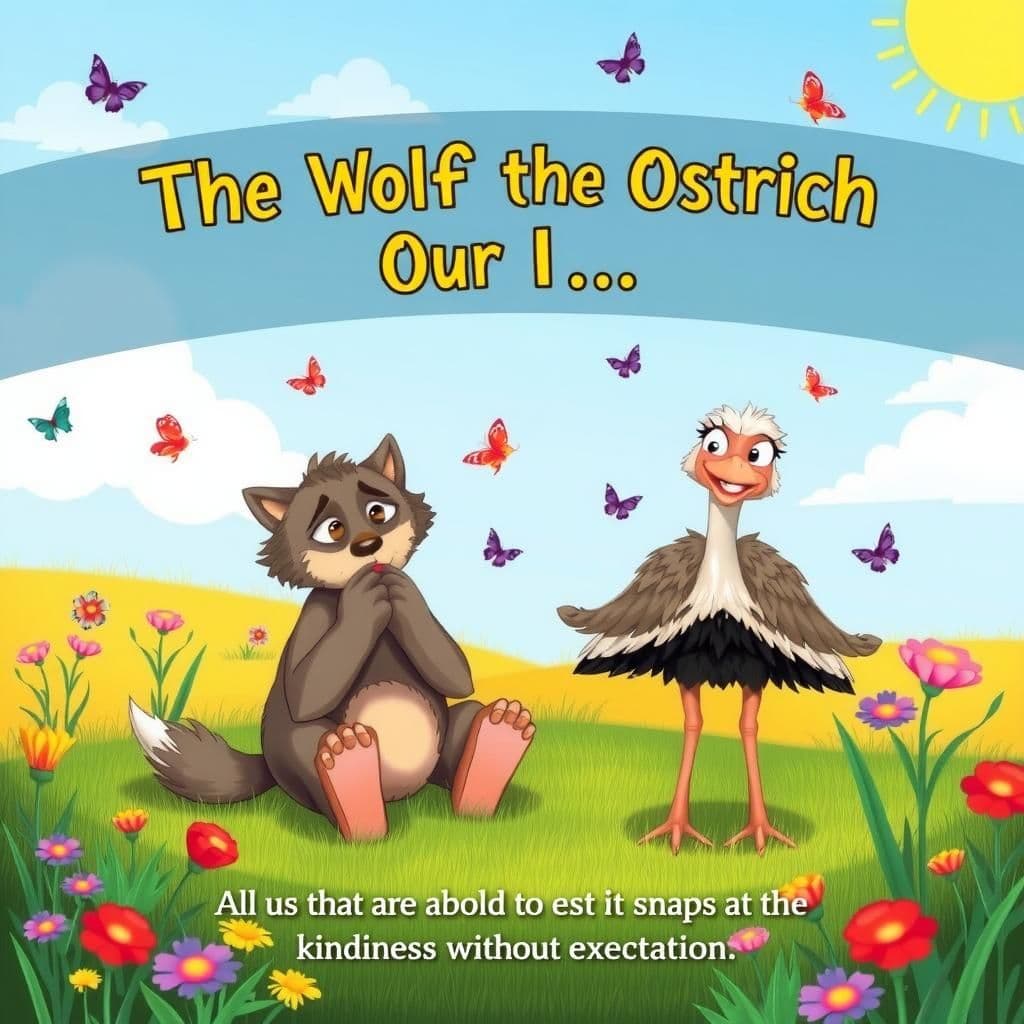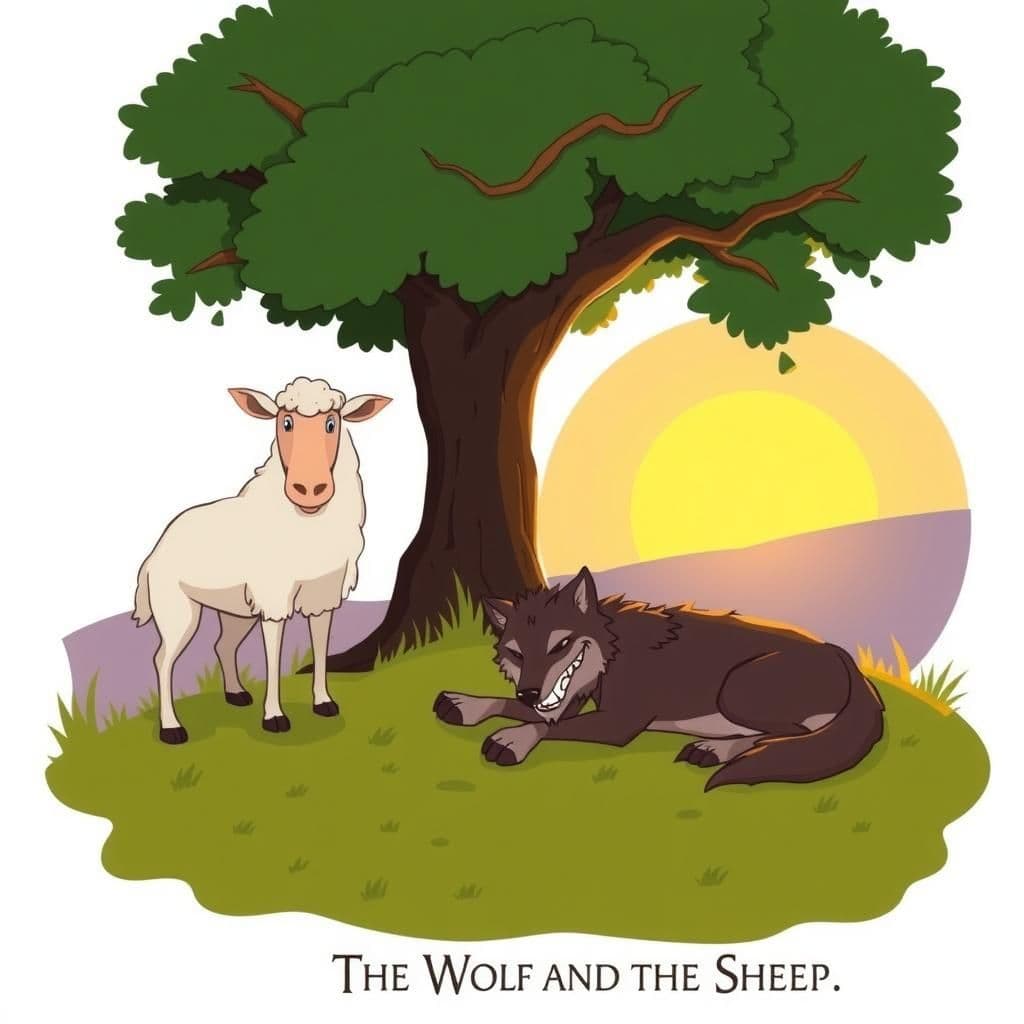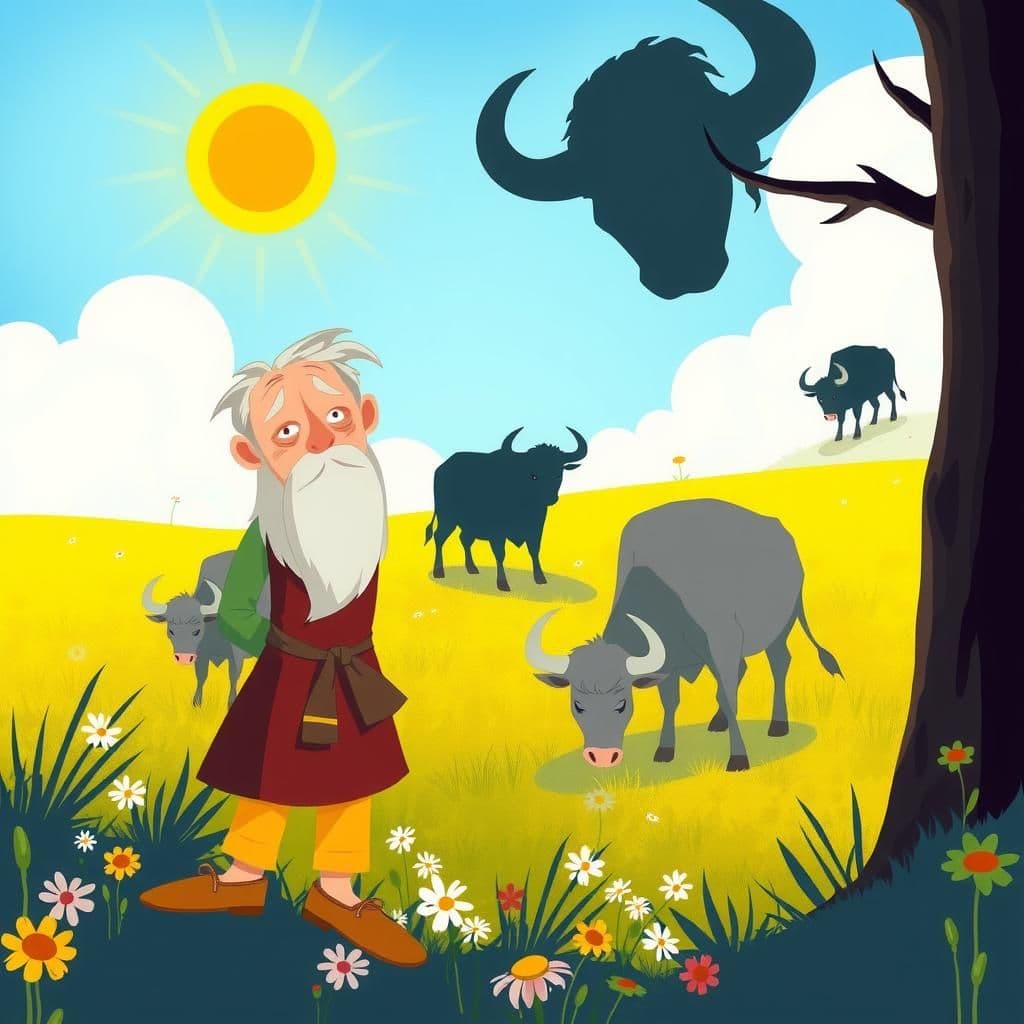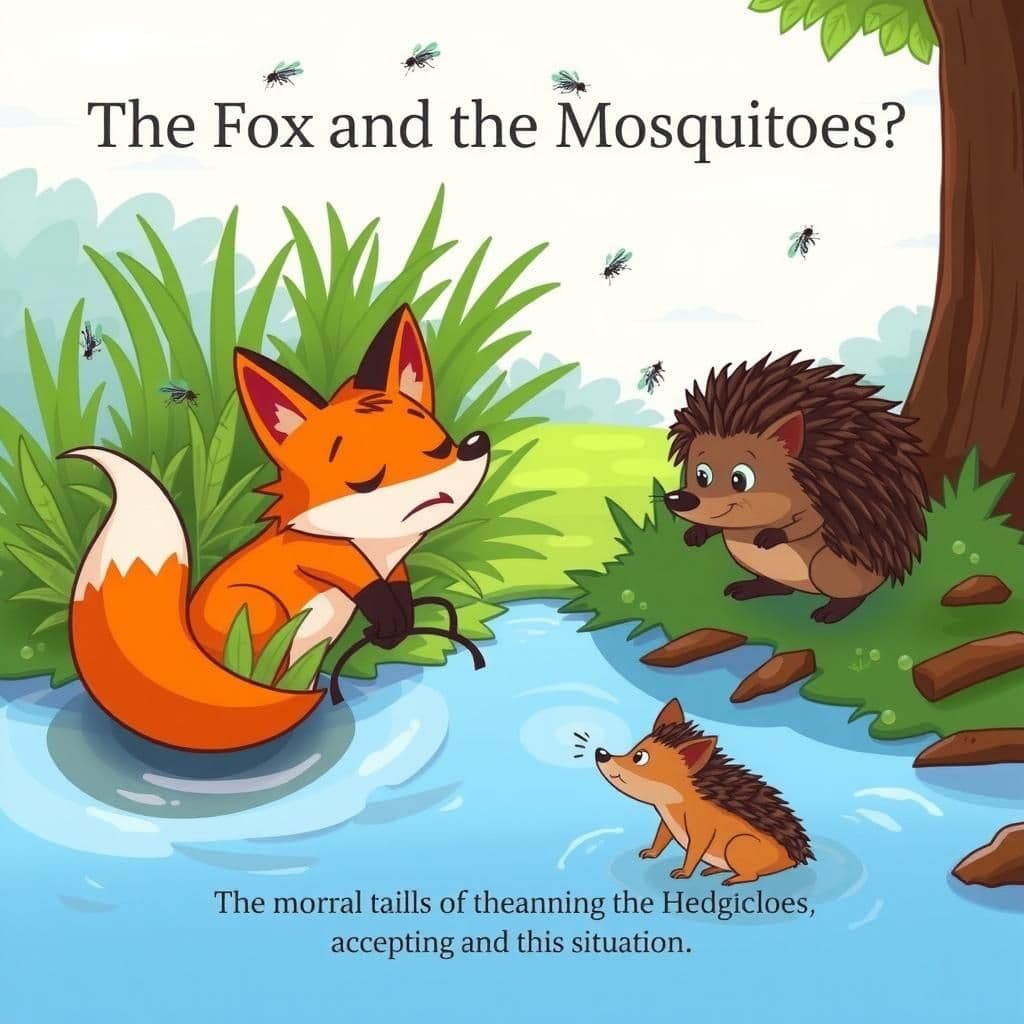The Wolf and the Ostrich

Story Summary
In the creative moral story "The Wolf and the Ostrich," a wolf chokes on a bunch of keys after eating a man and asks an ostrich for help to retrieve them. The ostrich obliges but humorously claims that a kind act is its own reward, asserting that she has eaten the keys instead. This whimsical tale serves as a life-lesson moral story, illustrating that selflessness does not always seek a reward.
Click to reveal the moral of the story
The moral of the story is that selfless acts of kindness should not be expected to be rewarded.
Historical Context
This story reflects themes found in Aesop's Fables, where anthropomorphized animals illustrate moral lessons through their interactions. The tale emphasizes the virtue of selflessness and the consequences of greed, common motifs in folklore across cultures. Variations of similar stories can be found in numerous traditions, highlighting the universal nature of these moral lessons.
Our Editors Opinion
This fable highlights the dangers of helping those who are untrustworthy, as kindness can be exploited by those with ulterior motives. In modern life, consider a scenario where a colleague consistently takes credit for others' work; when you assist them out of goodwill, they may not only fail to acknowledge your contribution but also manipulate the situation to their advantage, reminding us to be cautious about to whom we extend our help.
You May Also Like

The Wolf and the Sheep
In this unique moral story, a wounded Wolf deceitfully asks a passing Sheep to fetch him water, promising meat in return. The Sheep, recognizing the Wolf's true intentions, wisely refuses, illustrating the importance of discernment in the face of temptation. This culturally significant tale serves as an inspirational story with a moral, reminding us that hypocritical speeches are easily seen through.

The Old Man and The Ass
In "The Old Man and The Ass," a classic among concise moral stories, an old man and his ass encounter a lush meadow, where the carefree animal prioritizes its own comfort over the man's warnings about approaching robbers. This dynamic illustrates themes of self-interest and the relationship between master and servant, serving as a reminder found in many famous fables with moral lessons: sometimes, one's own safety may be overlooked in the pursuit of personal pleasure. Ultimately, the tale underscores the importance of recognizing the true nature of those we rely on in moral-based storytelling.

The Fox and the Mosquitoes
In this short and sweet moral story, a Fox finds its tail caught in a bush after crossing a river, attracting a swarm of Mosquitoes that feast on its blood. When a kind Hedgehog offers to help by driving the Mosquitoes away, the Fox declines, explaining that the current Mosquitoes are already full, and inviting new ones would only lead to a worse fate. This meaningful story teaches us that sometimes it is better to endure a lesser problem than to risk a greater one.
Other names for this story
"Keys of Kindness", "Ostrich's Brave Act", "Wolf's Greedy Gamble", "The Generous Ostrich", "Choked by Greed", "A Lesson in Kindness", "The Wolf's Dilemma", "Beneath the Surface"
Did You Know?
This fable highlights the themes of selfishness and gratitude, revealing how acts of kindness can sometimes go unrewarded, especially when the recipient has ulterior motives. The Ostrich's response emphasizes the idea that true generosity should not be contingent on receiving something in return.
Subscribe to Daily Stories
Get a new moral story in your inbox every day.